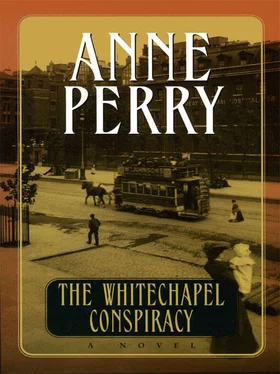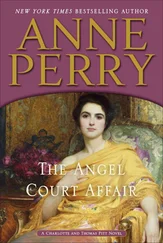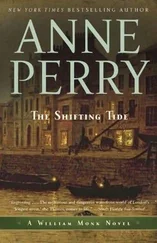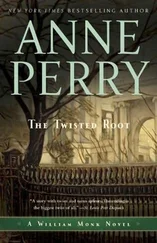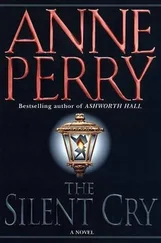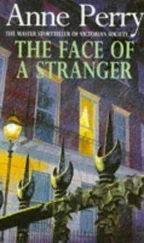“… do you, Sissons?” the Prince enquired. The expression on his face was polite but less than interested.
“Mostly through the Port of London,” Sissons replied. “Of course, it is a very labor-intensive industry.”
“Is it? I admit, I had no idea. I suppose we take it for granted. A spoonful of sugar for one’s tea, and so on.”
“Oh, there is sugar in scores of things,” Sissons said with feeling. “Cakes, sweet pastries, pies, even some things we might have supposed to be savory. A sprinkle of sugar improves the taste of tomatoes more than you would believe.”
“Does it really?” The Prince raised his eyebrows slightly in an attempt to look as if the information were of value to him. “I had always thought of salt for that.”
“Sugar is better,” Sissons assured him. “It is mostly labor that adds to the cost, you see?”
“I beg your pardon?”
“Labor, sir,” Sissons repeated. “That is why the Spitalfields area is good. Thousands of men needing work… an almost endless pool to call upon. Volatile, of course.”
“Volatile?” The Prince was still apparently lost.
Vespasia was aware of others within earshot of this rather pointless exchange, and also listening. Lord Randolph Churchill was one of them. She had known him in a slight way most of her life, as she had known his father before him. She was conscious of his intelligence and his dedication to his political beliefs.
“A great mixture of people,” Sissons was explaining. “Backgrounds, religions and so on. Catholics, Jews, and of course Irish. Lot of Irish. The need to work is about all they have in common.”
“I see.” The Prince was beginning to feel he had said enough to satisfy courtesy and might be excused for leaving this exceedingly dull conversation.
“It must be profitable,” Sissons continued, urgency rising in his voice, his face pink.
“Well, I imagine with a couple of factories, you are in a position to know.” The Prince smiled pleasantly, as if to conclude the matter.
“No!” Sissons said sharply, taking a step forward as the Prince took one away. “Actually three factories. But what I meant was not that it was profitable but that there is a great obligation upon me to make it so, otherwise over a thousand men will be thrown out of work, and the chaos and injury that would result from that would be appalling.” His words were tumbling out at increasing speed. “I could not even venture a guess as to where that would end. Not in that part of the city. You see, there is nowhere else for them to go.”
“Go?” The Prince frowned. “Why should they wish to go?”
Vespasia felt herself cringing. She had a very vivid idea of the soul-destroying poverty of parts of London, most especially the East End, of which Spitalfields and Whitechapel were the heart.
“I mean for work.” Sissons was becoming agitated. It was plain in the beads of sweat on his brow and lip, which were glistening in the lights. “Without work they will starve. God knows, they are close enough to it now.”
The Prince said nothing. He was clearly embarrassed. It was a most unseemly subject in this gorgeous, lavish display of pleasure. It was poor taste to remind men with glasses of champagne in their hands, and women decked with diamonds, that within a few miles of them thousands had not food and shelter for the night. It made them uncomfortable.
“It is necessary I stay in business!” Sissons’s voice rose a trifle, carrying above the hum of other conversations and the beat of the distant music. “I have to make sure I collect all my debts… so I can keep on paying them.”
The Prince looked bewildered. “Of course. Yes… it must be. Very conscientious, I am sure.”
Sissons swallowed. “All of them… sir.”
“Yes… quite so.” The Prince was looking decidedly unhappy now. His desire to escape this absurd situation was palpable.
Randolph Churchill took the liberty of interrupting. Vespasia was not surprised. She knew his relationship with the Prince of Wales was long and had varied. It had been one of extreme hatred over the Aylesford affair in 1876, when the Prince had actually challenged him to a duel with guns-to be fought in Paris, such a thing being illegal in England. Sixteen years ago the Prince had publicly refused to enter the house of anyone who received the Churchills. Consequently they had been almost entirely ostracized.
Eventually it had all died down, and Jennie Churchill, Randolph ’s wife, had so charmed the Prince-apparently enough to become one of his many mistresses-that he willingly dined at their home in Connaught Place and gave her expensive gifts. Randolph was back in favor. As well as being appointed leader of the House of Commons and Chancellor of the Exchequer, two of the highest offices in the land, he was the closest personal confidante of the Prince, sharing sporting and social events, giving advice and receiving praise and trust.
Now he stepped in to relieve a tedious situation.
“Of course you have to… er… Sissons,” he said cheerfully.
“Only way to conduct a business, what? But this is a time for enjoyment. Have some more champagne; it’s excellent.” He turned to the Prince. “I must congratulate you, sir, an exquisite choice. I don’t know how you do it.”
The Prince brightened considerably. He was with one of his own, a man he could trust not only politically but socially.
“It is rather, isn’t it? Did well there.”
“Superbly,” Churchill agreed, smiling. He was a beautifully dressed man of average height with regular features and a very wide, turned-up mustache which gave him a distinguished air. His manner was one of unquenchable pride. “I fancy it calls for something succulent to eat, to complement it. May I have something sent for you, sir?”
“No… no, I’ll come with you.” The Prince grasped the chance to escape. “I really ought to speak to the French ambassador. Good fellow. Do excuse us, Sissons.” And he turned and went with Churchill too rapidly for Sissons to do anything but mutter something unheard and take his leave.
“Mad,” Somerset Carlisle said softly at Vespasia’s elbow.
“Who?” she enquired. “The sugar man?”
“Not so far as I know.” He smiled. “Tedious in the extreme, but if that were insanity, then I should lock up half the country. I meant Churchill.”
“Oh, of course,” she said casually. “But you are far from the first to say that. At least he knows which side his advantage lies, which is an improvement on the Aylesford situation. Who is that very intense-looking man with the gray hair?” She half looked into the distance to indicate who she meant, then back again at Carlisle. “I don’t recall having seen him before, and yet he exudes a kind of passion which is almost evangelical.”
“Newspaper proprietor,” Carlisle replied. “ Thorold Dismore. I doubt he would approve your description of him. He is a republican, and a convinced atheist. But you are quite right, there is something of the proselyte about him.”
“I have never heard of him,” she replied. “And I thought I knew the newspaper proprietors in London.”
“I doubt you’d read his paper. It’s good quality, but he is not averse to allowing his opinions to shine through rather clearly.”
“Indeed?” She raised her eyebrows questioningly. “And why should that prevent me from reading them? I have never imagined people reported the news unfiltered through their own prejudices. Are his any more powerful than usual?”
“I think so. And he is not averse to advocating action in their cause.”
“Oh.” She felt it as a breath of chill, no more. She should not have been surprised. She looked across at the man more closely. It was a strong face, sharp, intelligent, moved by powerful emotion. She would have judged him a man who yielded no ground to anyone, and whose overt good nature might very easily mask a temper that could be ugly if roused. But first impressions could be mistaken.
Читать дальше
